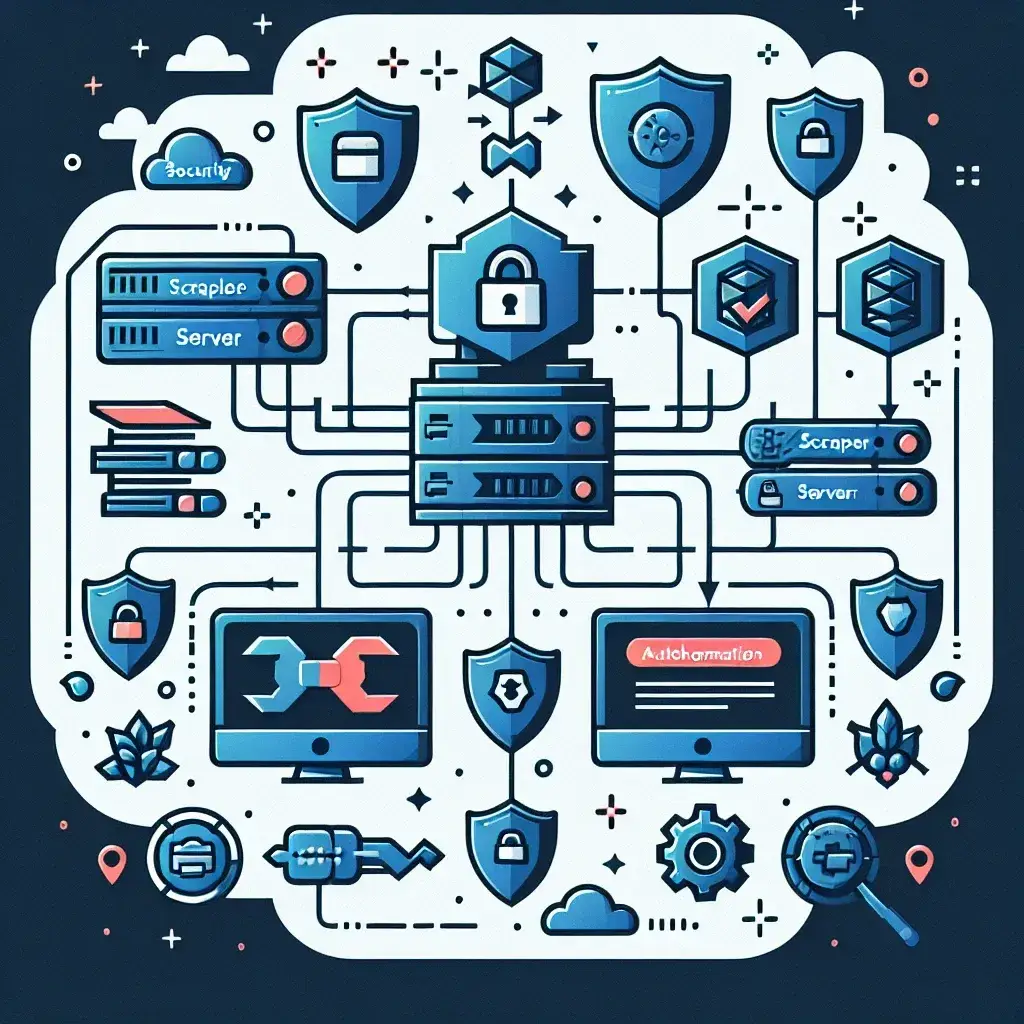In today’s data-driven economy, web scraping has become an essential tool for businesses, researchers, and developers seeking to extract valuable information from websites. However, the legal landscape surrounding data extraction varies dramatically across different jurisdictions, creating a complex web of regulations that organizations must navigate carefully. Understanding these legal frameworks is crucial for anyone engaged in web scraping activities, as violations can result in severe penalties, legal action, and reputational damage.
The Foundation of Web Scraping Legislation
Web scraping laws have evolved alongside technological advancement, with different countries taking varying approaches to regulate data extraction activities. The legal framework typically encompasses several key areas: copyright law, terms of service agreements, data protection regulations, and computer fraud statutes. These laws aim to balance the legitimate need for data access with protecting website owners’ rights and user privacy.
The complexity arises from the fact that web scraping operates in a legal gray area where traditional laws must be interpreted in the context of modern digital practices. Courts worldwide have struggled to establish consistent precedents, leading to a patchwork of regulations that vary significantly by jurisdiction.
United States: The CFAA and Beyond
The United States takes a particularly strict approach to web scraping through the Computer Fraud and Abuse Act (CFAA), enacted in 1986 and amended multiple times. This federal law criminalizes accessing computers without authorization, which has been interpreted by some courts to include automated data extraction from websites.
Key Legal Precedents
Several landmark cases have shaped the US legal landscape for web scraping. The hiQ Labs v. LinkedIn case established important precedents regarding publicly available data, ruling that scraping publicly accessible information may not violate the CFAA. However, the Sandvig v. Sessions case highlighted ongoing uncertainties about the law’s application to research activities.
US courts generally consider several factors when evaluating scraping cases:
- Whether the scraped data is publicly accessible
- The presence and enforceability of website terms of service
- The volume and frequency of data requests
- Whether the scraping causes technical harm to the website
- The commercial nature of the scraping activity
European Union: GDPR and Data Protection
The European Union has implemented some of the world’s most comprehensive data protection regulations through the General Data Protection Regulation (GDPR), which came into effect in 2018. This regulation significantly impacts web scraping activities, particularly when personal data is involved.
GDPR Compliance Requirements
Under GDPR, organizations engaging in web scraping must ensure they have a lawful basis for processing personal data. The regulation requires:
- Explicit consent from data subjects for processing their personal information
- Implementation of data protection by design and by default
- Appointment of Data Protection Officers for certain organizations
- Conducting Data Protection Impact Assessments for high-risk processing
- Providing clear privacy notices and respecting individual rights
Violations of GDPR can result in fines up to €20 million or 4% of annual global turnover, whichever is higher, making compliance a critical business consideration.
United Kingdom: Post-Brexit Developments
Following Brexit, the UK has maintained similar data protection standards through the UK GDPR and the Data Protection Act 2018. However, the UK is developing its own approach to data regulation, which may diverge from EU standards over time.
The UK’s approach emphasizes balancing innovation with privacy protection, potentially offering more flexibility for legitimate scraping activities while maintaining strong consumer protections. The Information Commissioner’s Office (ICO) provides guidance on web scraping that emphasizes the importance of fair processing and transparency.
Canada: PIPEDA and Provincial Variations
Canada’s privacy landscape is governed by the Personal Information Protection and Electronic Documents Act (PIPEDA) at the federal level, with additional provincial legislation in some jurisdictions. The Canadian approach tends to be more permissive than the EU regarding legitimate business purposes for data collection.
Key considerations for web scraping in Canada include:
- Ensuring meaningful consent for personal information collection
- Limiting collection to what is necessary for identified purposes
- Implementing appropriate safeguards for collected data
- Providing individuals with access to their personal information
Australia: Privacy Act and Consumer Rights
Australia’s Privacy Act 1988 and the Australian Privacy Principles (APPs) govern data collection and processing activities. The Australian approach emphasizes transparency and individual control over personal information, with specific requirements for notification and consent.
The Australian Competition and Consumer Commission (ACCC) has also shown interest in regulating digital platforms and data practices, which may impact future scraping regulations. Organizations must consider both privacy law compliance and potential competition law implications.
Asia-Pacific Region: Diverse Approaches
The Asia-Pacific region presents a diverse regulatory landscape, with countries taking varying approaches to web scraping and data protection.
Japan
Japan’s Personal Information Protection Act (PIPA) was significantly amended in 2020 to strengthen privacy protections. The law requires explicit consent for personal data processing and includes extraterritorial provisions affecting international scraping activities.
Singapore
Singapore’s Personal Data Protection Act (PDPA) follows a consent-based model similar to other developed nations. The city-state’s approach emphasizes business-friendly regulations while maintaining strong privacy protections.
China
China has implemented comprehensive data protection laws including the Personal Information Protection Law (PIPL) and the Cybersecurity Law. These regulations impose strict requirements on data processing and cross-border transfers, significantly impacting international scraping operations.
Best Practices for Global Compliance
Organizations engaged in web scraping across multiple jurisdictions should implement comprehensive compliance strategies that address the strictest applicable requirements. Key best practices include:
Technical Measures
- Implementing rate limiting to avoid overwhelming target servers
- Respecting robots.txt files and website terms of service
- Using appropriate user agents and identifying scraping activities
- Implementing data minimization principles
- Ensuring secure data storage and transmission
Legal Safeguards
- Conducting thorough legal reviews before initiating scraping projects
- Obtaining appropriate legal opinions for cross-border activities
- Implementing privacy-by-design principles
- Maintaining detailed documentation of data processing activities
- Establishing clear data retention and deletion policies
Emerging Trends and Future Considerations
The legal landscape for web scraping continues to evolve rapidly as governments worldwide grapple with balancing innovation, competition, and privacy concerns. Several trends are shaping the future regulatory environment:
Increased Enforcement: Regulatory authorities are becoming more active in enforcing data protection laws, with significant fines and penalties becoming more common.
Technical Standards: Industry groups are developing technical standards for ethical web scraping, which may influence future legal requirements.
International Cooperation: Countries are increasingly cooperating on cross-border data protection enforcement, making compliance with multiple jurisdictions essential.
AI and Machine Learning: The integration of AI technologies with web scraping is raising new legal questions about automated decision-making and algorithmic transparency.
Practical Recommendations for Organizations
To navigate this complex legal landscape successfully, organizations should adopt a proactive approach to compliance that includes regular legal assessments, technical safeguards, and ongoing monitoring of regulatory developments. Building relationships with legal experts in relevant jurisdictions and staying informed about industry best practices will be crucial for long-term success in the evolving world of web scraping regulation.
The key to successful compliance lies in understanding that web scraping laws are not merely technical restrictions but reflect broader societal values about privacy, competition, and digital rights. Organizations that embrace these principles while pursuing their legitimate business objectives will be best positioned to thrive in the global digital economy.


